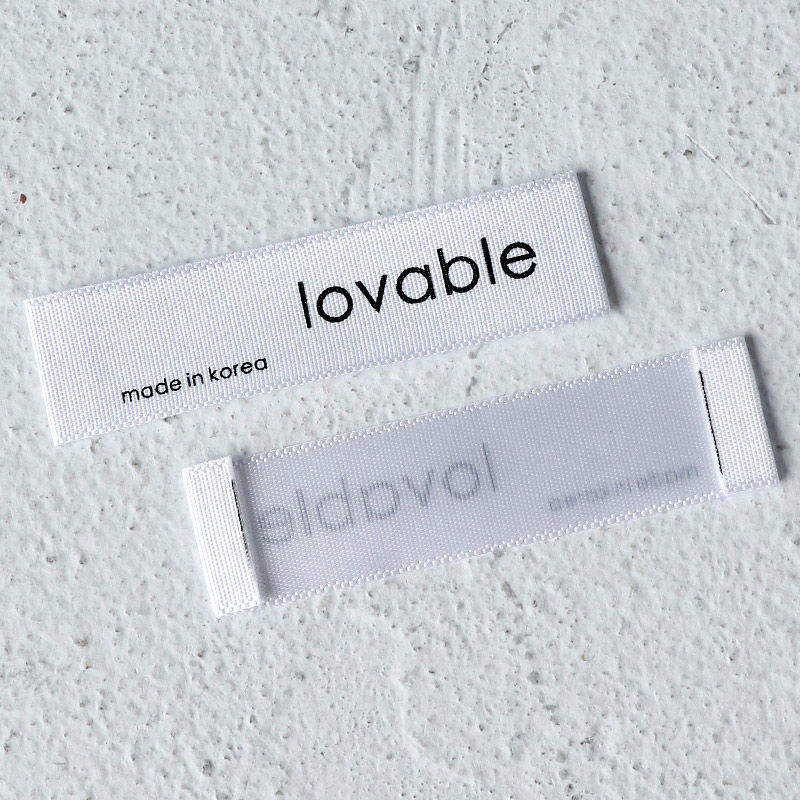
Key Factors that Influence Clothing Purchase Decisions

When shopping for new clothes, consumers often consider various factors before making a purchase. These factors may include style, fit, comfort, and quality. While these aspects are undoubtedly important, one element that significantly influences consumer decisions is the clothing label. In this article, we will explore how clothing tags play a crucial role in shaping purchase decisions and how businesses can leverage this power to promote their products.
1. Information & Transparency
Clothing labels provide essential information about the garment, such as its fabric composition, care instructions, and country of origin. This information is vital for consumers as it helps them make an informed decision. Brands that emphasize transparency by providing detailed and accurate labeling build trust with their customers, which, in turn, influences their purchasing behavior.
2. Branding & Perception
A clothing tag is not merely a piece of fabric with printed information; it also serves as a powerful branding tool. The design, color, and overall aesthetic of a label convey the brand's identity and influence consumer perception. A well-crafted clothing tag can evoke a sense of luxury, sophistication, or casualness, aligning with the target audience's preferences and attracting potential buyers.
3. Quality Assurance
Clothing tags often include symbols or certifications that indicate the quality and standard of the product. For instance, a "100% organic cotton" label assures consumers that the garment is made from environmentally friendly materials. Similarly, labels indicating product safety standards or ethical production practices reassure buyers about the quality and integrity of the clothing. These labels not only influence purchase decisions but also differentiate brands that prioritize quality from others.
4. Personalized Recommendations
In the digital age, clothing tags have evolved beyond physical fabric labels. Online retailers utilize virtual tags or meta tags to provide personalized recommendations to customers based on their browsing and purchasing history. These digital tags analyze consumer behavior, preferences, and demographics to suggest similar or complementary products. By tailoring recommendations to individuals, clothing tags create a personalized shopping experience and entice customers to make more purchases.
5. Sustainable & Ethical Practices
Consumers today are increasingly conscious of sustainability and ethical practices. Clothing labels play a significant role in communicating a brand's commitment to these values. Labels indicating fair trade certification, recycled materials, or carbon-neutral manufacturing processes establish a brand's credibility among eco-conscious consumers. By highlighting sustainable and ethical practices through clothing tags, businesses can attract a loyal customer base and influence purchase decisions in their favor.
Harnessing the Power of Clothing Labels
Now that we understand the impact of clothing tags on consumer buying decisions, businesses should consider implementing the following strategies:
1. Provide Clear and Accurate Information
Ensure that clothing labels contain comprehensive and easy-to-understand information about the product, including fabric composition, care instructions, and sizing details. Inaccurate or misleading labeling can negatively affect brand reputation and deter potential customers.
2. Design Labels that Reflect the Brand Identity
Create visually appealing and well-designed clothing labels that align with the brand's image and target audience. The label's design should resonate with the brand's values, aesthetics, and overall branding strategy.
3. Incorporate Sustainable and Ethical Labels
Emphasize sustainable and ethical practices by including relevant labels or certifications on clothing tags. This communicates the brand's commitment to responsible production and attracts consumers seeking environmentally friendly options.
4. Leverage Digital Tags for Personalized Recommendations
Online retailers can utilize virtual clothing tags to provide personalized recommendations to customers. Implement algorithms that analyze customer data to suggest products based on their preferences, increasing the chances of conversion and repeat purchases.
5. Regularly Update and Improve Labels
Stay up-to-date with industry trends and regulations to ensure that clothing labels comply with current standards. Regularly review and improve labeling strategies to maintain brand trust and cater to evolving consumer demands.
Conclusion
Clothing labels hold significant power in influencing consumer buying decisions. Information transparency, branding, quality assurance, personalized recommendations, and sustainable practices are key aspects that clothing tags encapsulate. By utilizing effective labeling strategies, businesses can enhance their product appeal, build consumer trust, and ultimately influence purchasing behavior in their favor.
zhongxin clothing label wholesaler zhongxin clothing label supplier China clothing label wholesaler clothing labels custom
